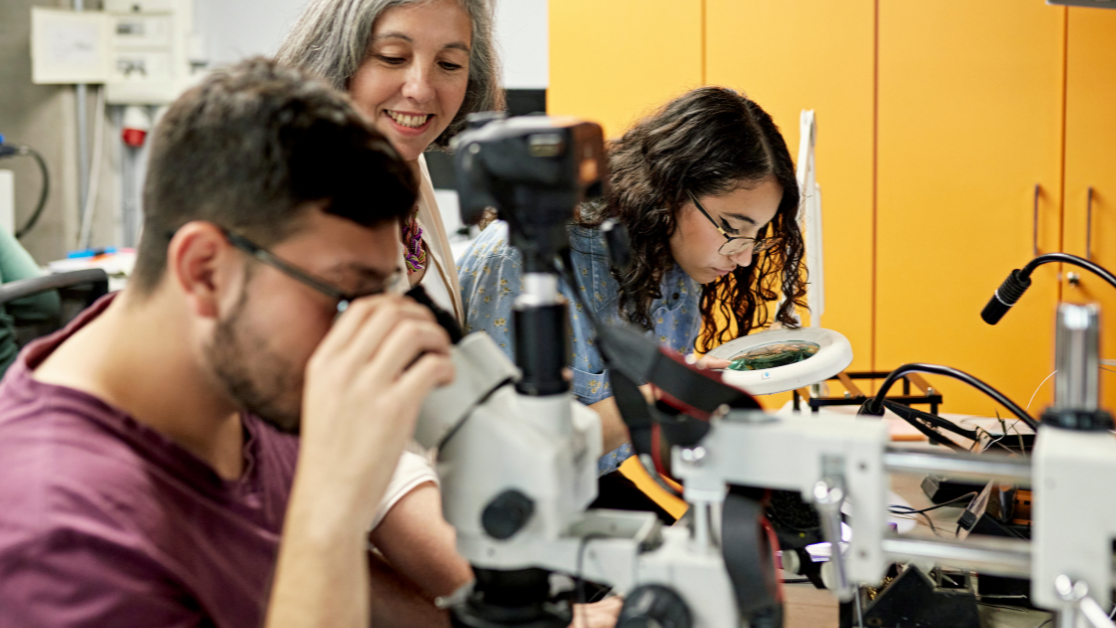For the past few years we’ve joined forces with Jobs for the Future (JFF) and research firm Morning Consult to learn more about the trends and policies shaping and influencing career readiness, and to better understand how Gen Z thinks about postsecondary pathways.
Julie Lammers, ASA’s SVP of Advocacy and Corporate Social Responsibility, recently joined Joel Vargas of JFF and Rahul Choudaha of Morning Consult for a webinar in which we discussed the findings of our latest joint white paper, Success, Redefined. They rallied around a central idea in the paper: that the notion of a college degree as the only pathway to success is an outdated one, and that today’s young people deserve to learn about and have access to a wide array of high-quality options.
At the very start of our research journey together, we learned that less than half of young people felt they actually had enough information to make an informed decision about their post high school future. This clarified the scale of the problem we were facing. Meanwhile, we knew that some 72% of employers don’t think the degree is a reliable signal of a candidate’s readiness for the job, with some 81% expressing a desire for a shift to skills-based hiring.
It’s clear that there’s a huge opportunity to help kids and young adults understand the full complement of postsecondary pathway options at their fingertips, and to help them go after the pathway that makes the most sense for their unique needs, passions, and goals. However, there’s more to this than simply saying, “Hey, have you considered apprenticeships, internships, or microcredentials?” Because we also learned in this research that many Gen Z youth are concerned about choosing the wrong postsecondary pathway. There’s trepidation around doing something that might not give them the kind of credential that they see employers hiring for. As such, many Gen Z youth still don’t feel comfortable outside of the default of going to two- or four-year college.
The pervasive fear of choosing a lesser pathway is a really big limitation surrounding our work, but it’s one that we are confident is going to disappear in the coming years as employers see the value in hiring from outside the degree-holding candidate pool. The more young people who see and hear about examples of their peers pursuing and excelling in pathways like certification programs, bootcamps, or dual enrollment programs—and coming out on the other end with an in-demand credential and little financial setback— the more we’ll see the acceptance of such pathways grow. We know, and young people are increasingly realizing, that non-degree pathways offer a number of advantages to young people that can’t be underestimated. Namely, they are flexible and stackable in format, affordable, and help people get into the workforce quickly.
For the time being, we are thrilled to be uncovering a really encouraging picture—thanks to a subset of young respondents—of the experiences of young people who have pursued or are pursuing nondegree pathways like bootcamps, apprenticeships, microcredentials and beyond.
To summarize, the young people in our research who have pursued or are pursuing a nondegree pathway:
- Feel confident in their choice
- Feel they are ready for the workforce with the current level of education they have built in their pathway
- Are gainfully employed (compared to their non-pathway youth respondents)
- Are satisfied with the program they have chosen
We heard from one such learner, Yssa, who shared with us her experience of building skills and earning stackable credentials in bootcamps and other work-based learning experiences.
“Every [work-based learning] experience you have is an opportunity to learn more transferable skills…Networking through these experiences helped me build a lot of confidence, and being able to talk to professionals helped me learn more about the industry. Nondegree pathways are not a hand-holding opportunity. You have to manage it and build discipline. As a Black person maneuvering through life, a college degree seems like the ultimate accomplishment. But it shouldn’t be anymore.”




